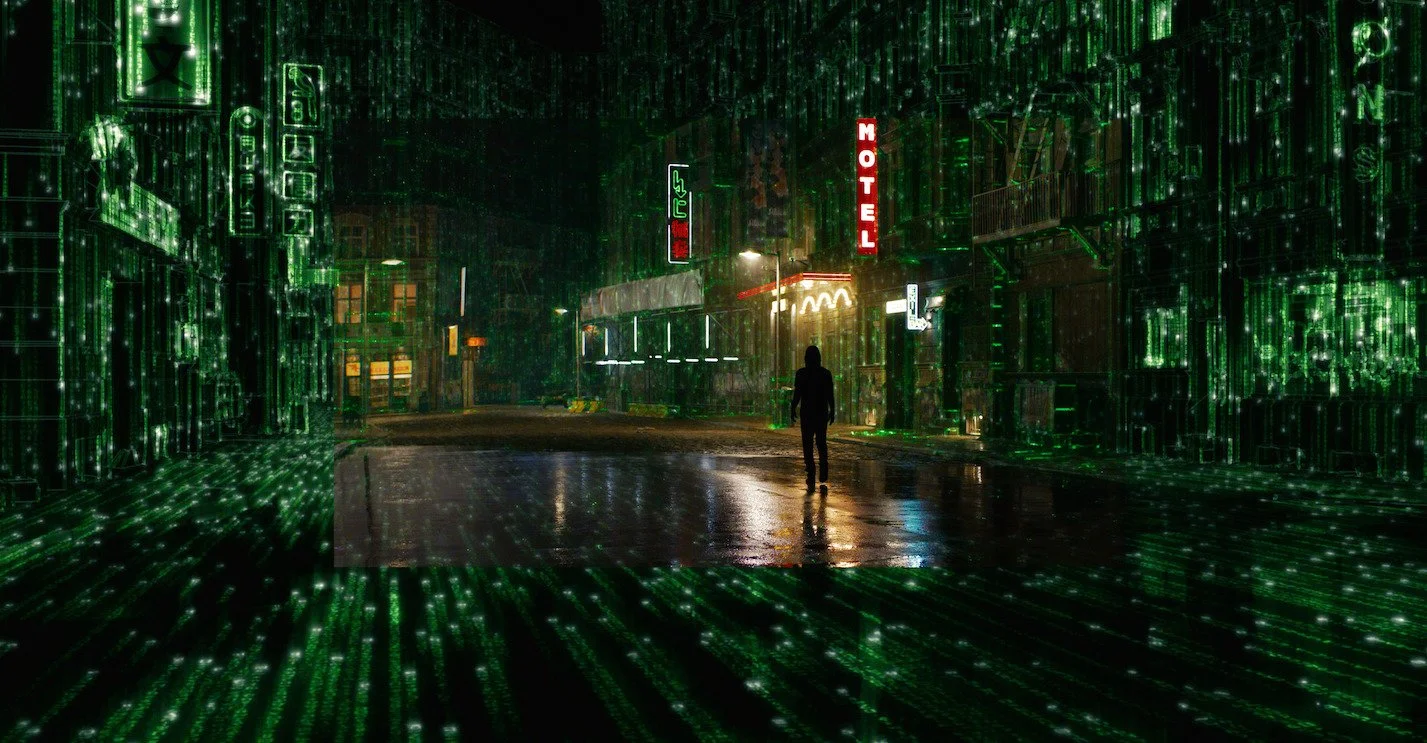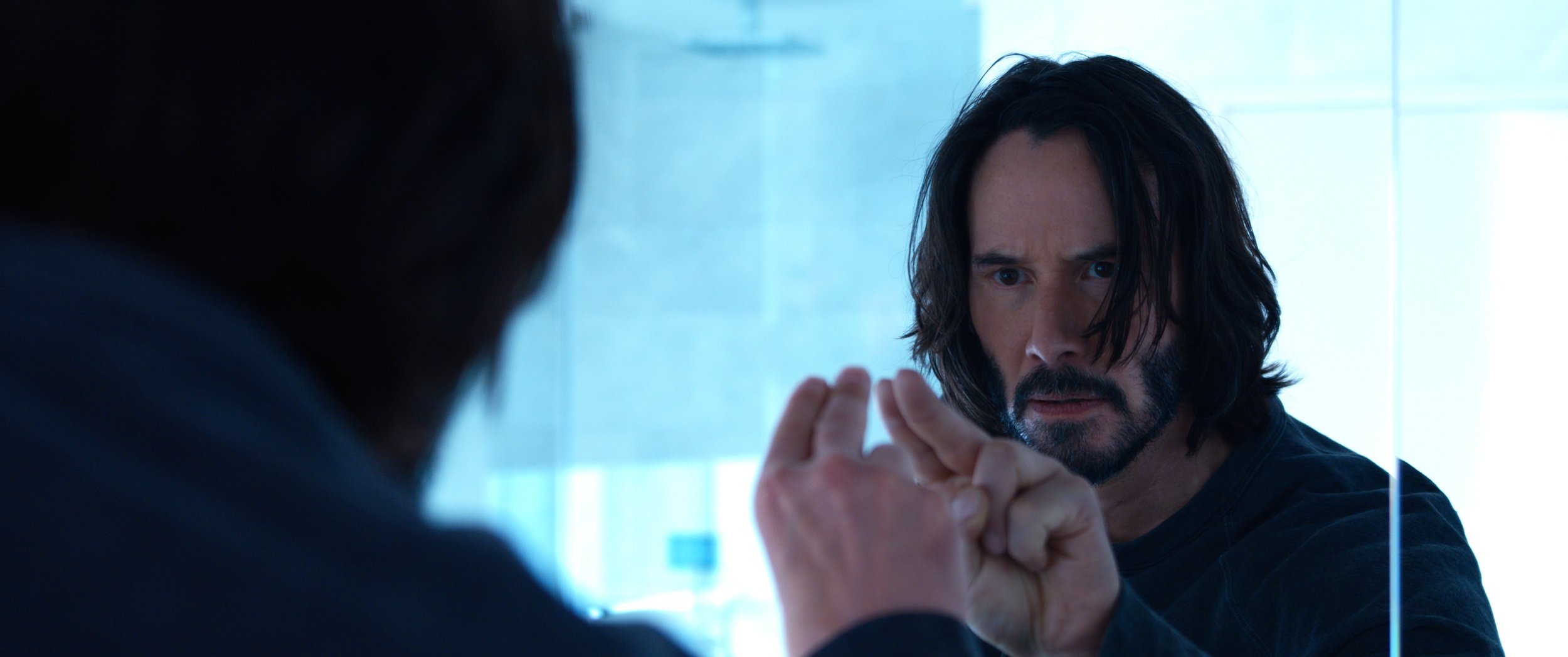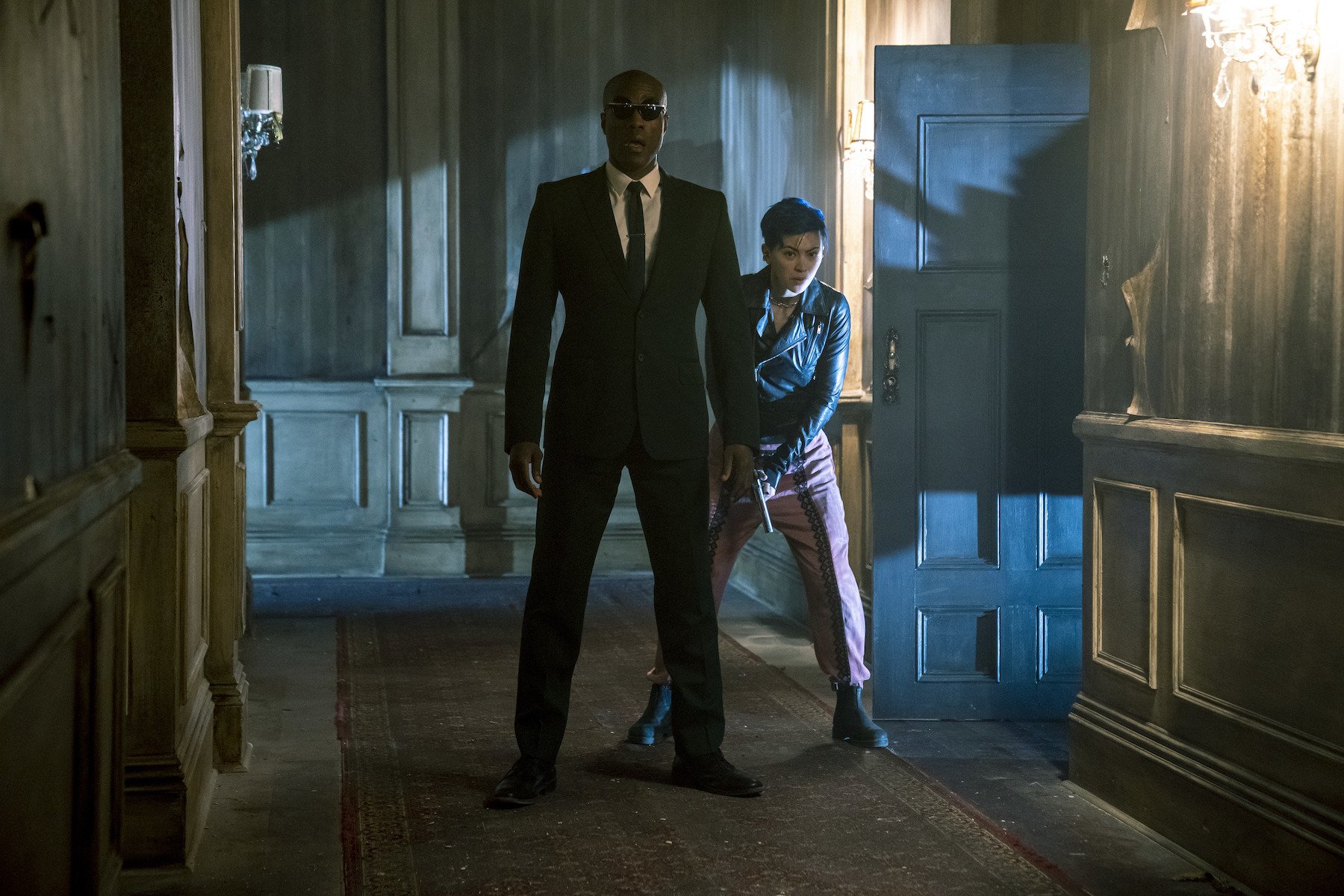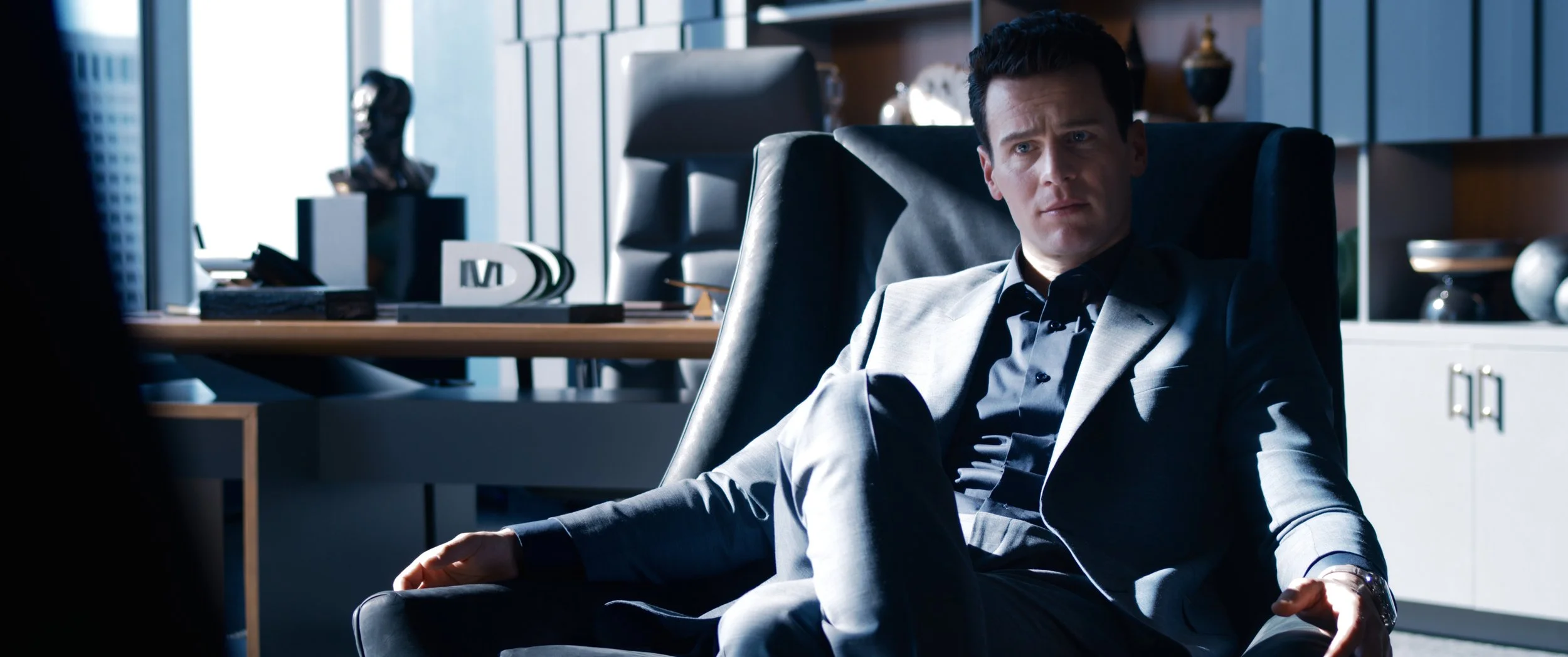‘Matrix’ Retired
25 years later and armed with an extra $130 million, Lana Wachowski returns to The Matrix alone and proves lightning still won’t strike twice.
The Matrix: resurrections
Director: Lana Wachowski • Writers: Lana Wachowski, David Mitchell, Aleksander Hemon
Starring: Keanu Reeves, Carrie-Anne Moss, Yahya Abdul-Mateen II, Jonathan Groff, Jessica Henwick, Neil Patrick Harris, Jada Pinkett Smith
USA/UK/Australia • 2hrs 29mins
Opens Hong Kong Dec 22 • IIB
Grade: C
Anything The Wachowskis do is worth watching at least once.
In the 25-odd years they’ve been working, the sisters have never once half-assed it. That’s not to say every film has been a masterpiece, but Lilly and Lana go all in, every time. So much so that their singular vision and style has been copied time and time again. Trinity’s defining jump-freeze-spin is nearly as gouge-your-own-eyes-out omnipresent as the Three Point Landing. Among the Wachowskis’ highs are their 1996 directorial debut, the lesbian noir thriller Bound, which holds up to this day, the underrated 2015 Netflix series Sense8, which was admittedly all over the map but was also a clinic in representative casting that — wait for it — made the storytelling better (imagine that!), and, yes, the batshit Jupiter Ascending. That was a hot mess with a cherry on top in Eddie Redmayne hilariously whispering… whispering… whispering… HOLLERING his dialogue, but it certainly swung for the fences. Way too many filmmakers these days play it safe. Gimme an ambitious failure over paint-by-numbers IP any day of the week.
Of course on the low side is dreck like the baffling Speed Racer and the misguided Cloud Atlas in 2012, which worked amazingly well on the page as a novel by David Mitchell, but came off screamingly icky on screen. White guys playing Koreans, black women as Pacific Islanders, Tom Hanks as a post-apocalyptic tribal leader. Aiyah, what a mess.
Peak Wachowskis is, of course, 1999’s The Matrix, the film that gave us bullet time, made Hong Kong-style action a Hollywood standard, the red pill/blue pill debate and launched a million bullshit “But what if this isn’t reality, man?” pseudo-philosophical debates on university campuses worldwide. In the 20 years since, the Wachowskis, gamers themselves, have also had a hand in creating a series of Matrix MMORPG and cross-platform video games for Shiny Entertainment, Monolith and Epic, often in partnership with Warner (uh huh, that Warner). The Matrix was the little oddball scifi actioner that could back in the day, a simple story about a dude with a destiny who embraces it when he realises he’s been lied to most of his life, with some spiritual hokum thrown in for good measure. Do I get a leather jumpsuit like that if I sign up? Who didn’t want to look like Carrie-Anne Moss’s Trinity in that pleather get-up?
With or without the Wachowskis, Warner Bros. was never going to let The Matrix franchise just sit there. So now comes The Matrix: Resurrections, which rolls the pseudo-philosophy filler of The Matrix: Reloaded and The Matrix: Revolutions, game culture and movies together for a big waste of time. ‘Cause here’s the thing: Making “meta” jokes about how you’re actually in a construct and loading up your movie with cool gags showing off how self-aware you are, and tossing off a few reflexive cracks about product doesn’t make any of that untrue, nor does it forgive sloppy writing and lazy storytelling. Meta jokes wielded like a cudgel are the result of a lack of imagination. That’s a first for either Wachowski. Not even the eighth wonder of the world that is Keanu Reeves can save this.
In her first solo film, Lana Wachowski picks up just under 20 years after the gooey events of Revolutions, with Thomas Anderson (Reeves, turning in precisely the performance you think he will) as a possibly mentally unbalanced game designer, whose blue pills are a prescribed medication. His “reality” starts to unravel when pressure to meet the deadline for his new Matrix game (ho ho ho!) looms, and the soccer mom who frequents his favourite coffee shop, Tiffany (Moss), starts looking familiar. Are his games pulled from memories, or is his mental health deteriorating? At the same time the next generation of machine resistance fighters, Bugs (Iron Fist’s Jessica Henwick), makes contact with a dude who eventually becomes Morpheus (Yahya Abdul-Mateen II, Candyman), and then hits Anderson with his true identity as the legendary Neo and, well you know the rest. Now, though, Agent Smith (Jonathan Groff) likes his own newfound freedom (yeah, I don’t get it either) and wants the Matrix to be peaceful? Anderson’s doctor The Analyst (Neil Patrick Harris, not singing) steps into the antagonist role, and Niobe (Jada Pinkett Smith in ridiculous old lady makeup) is the rebel general in charge. Oh, and that nonsense romance that almost got everyone killed more than once in Matrices 2 and 3 is rekindled. It’s a noisy movie.
Trying to help Wachowski massage a coherent story from all this (and mostly failing) is Mitchell, whose deftness with generational and spatial shifting and comfort around concepts of universal trans-cultural humanity escapes him here, and Bosnian essayist and author Aleksander Hemon, who come to think of it when taken with Cormac McCarthy (who wrote the script for 2013’s execrable The Counselor) proves that great novelists don’t necessarily make great screenwriters. Threads are left dangling, it’s unclear what the endgame is, and Neo is reduced to being a side player in his own story. There are plenty of call backs to the earlier films that are likely supposed to tie everything together as a larger whole, but don’t. And how did Neo and Trinity survive? Who the hell is that big floating head guy? That’s some Zardoz level lunacy right there, but none of it really works.
Nonetheless Resurrections has technical prowess to fall back on: the production design by Hugh Bateup and Peter Walpole is suitably Matrix-y, DOPs Daniele Massaccesi and Wachowski regular John Toll (Billy Lynn’s Long Halftime Walk, The Thin Red Line) keeps the visuals grandiose, with the expected dark corners and slick streets in full bloom. But what’s missing is that sense of innovation The Matrix had; that feeling of “What is this?” The first film was one of those galvanising cultural moments, like 2001: A Space Odyssey in 1968, Star Wars in 1977 and The Avengers in 2012 that everyone, everywhere was talking about at the time, and that changed cinema, and the cinema business in the case of the latter. The Matrix was one of those; The Matrix Resurrections is indeed referencing that groundbreaker, but in all the wrong ways. This is one to watch once. DEK




